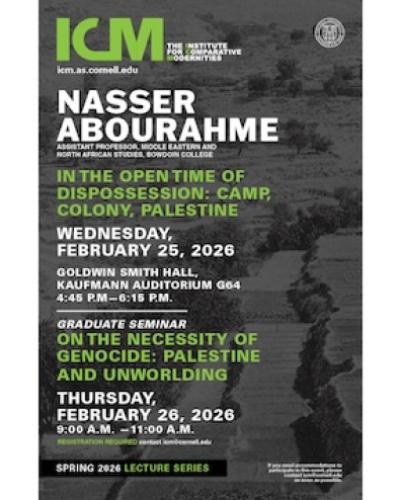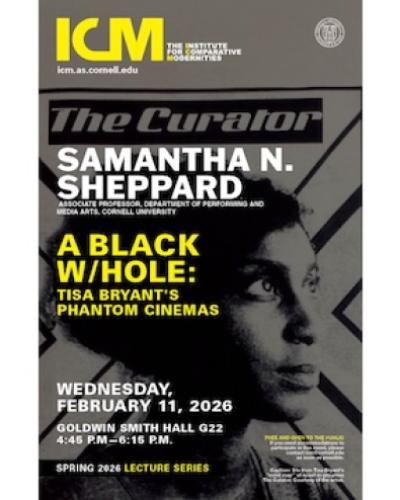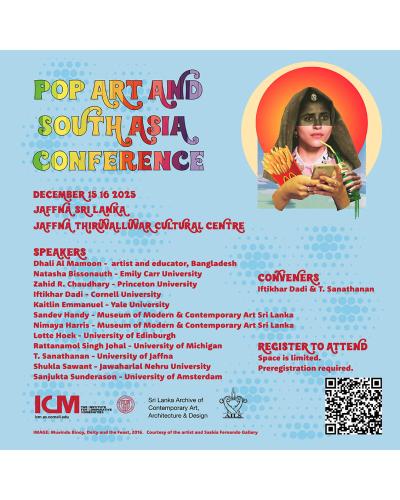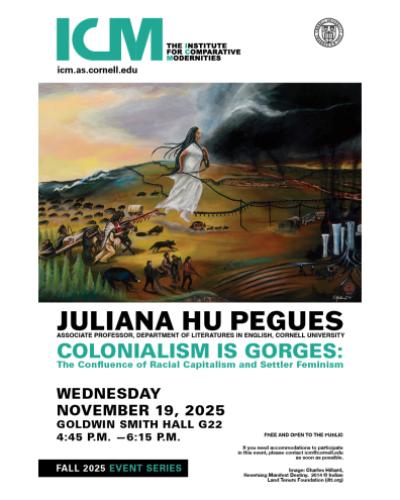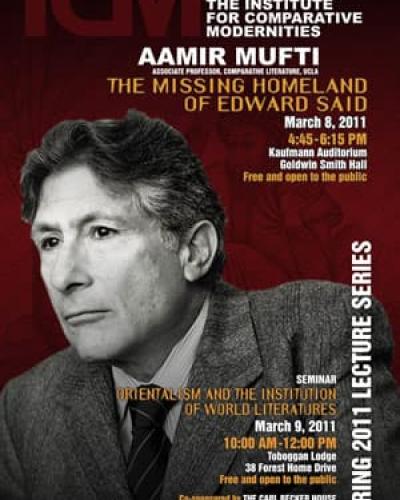Kaufman Auditorium Goldwin Smith Hall (March 8th)
Toboggan Lodge (March 9th)
AAMIR MUFTI (Associate Professor, Comparative Literature, UCLA)
LECTURE: THE MISSING HOMELAND OF EDWARD SAID
MARCH 8, 2011
4:45 – 6:15 pm
Kaufmann Auditorium
Goldwin Smith Hall
Free and open to the public
Co-sponsored by the Carl Becker House
What is the significance, the status, of Palestine in the writings of Edward Said? This paper argues that the various threads of Said's preoccupation with the question of Palestine do not constitute a distinct, "political" area of his thought but rather are woven into the literary-theoretical critical project itself. His understanding of criticism as an exilic form of consciousness does not imply a "placeless" cosmopolitanism. It calls instead for a distinct form of habitation of place and meaning, which we may think of as a missing homeland.
SEMINAR: ORIENTALISM AND THE INSTITUTION
OF WORLD LITERATURES
MARCH 9, 2011
10:00 am – 12:00 pm
Toboggan Lodge
38 Forest Home Dr.
Free and open to the public
READING AVAILABLE FOR DOWNLOAD:
Orientalism and the Institution of World Literatures
In the current revival of the concept of world literature, something of considerable importance appears to be largely missing: the question of Orientalism. Despite the reputation of Edward Said’s Orientalism as a sort of foundational text for concern with cultural relations on a planetary scale, the specifics of that book’s conceptual armature or the archive with which it engages do not seem to play a significant role in this renewed discussion and intensification of interest in the effort to comprehend literature as a planet wide reality. This paper calls for a rethinking of world literature as a project of the Orientalist conjuncture and therefore as a concept that is implicated in the structure of hierarchies that Said called Orientalism.
Aamir Mufti pursued his doctoral studies in Literature at Columbia University under the supervision of Edward Said. He was also trained in Anthropology at Columbia and the London School of Economics, and his research and teaching reflect this disciplinary range. His work reconsiders the secularization thesis in a comparative perspective, with a special interest in Islam and modernity in India and the cultural politics of Jewish identity in Western Europe. His areas of specialization include colonial and postcolonial literatures, with a primary focus on India and Britain, and nineteenth- and twentieth-century Urdu literature in particular; Marxism and aesthetics; Frankfurt School critical theory; minority cultures; exile and displacement; refugees and the right to asylum; modernism and fascism; language conflicts; global English and the vernaculars; and the history of anthropology. His most recent contribution to the study of secularism is a book, Enlightenment in the Colony: The Jewish Question and the Crisis of Postcolonial Culture (Princeton University Press, 2007). Current work includes two book projects, one concerning exile and criticism, and the other, the colonial reinvention of Islamic traditions. He edited Critical Secularism, a special issue of the journal boundary 2 and has also co-editedDangerous Liaisons: Gender, Nation, and Postcolonial Perspectives(University of Minnesota Press, 1997). His work has appeared in such periodicals as Social Text, Critical Inquiry, Subaltern Studies,boundary 2, Journal of Palestine Studies, Theory and Event, andthe Village Voice.

